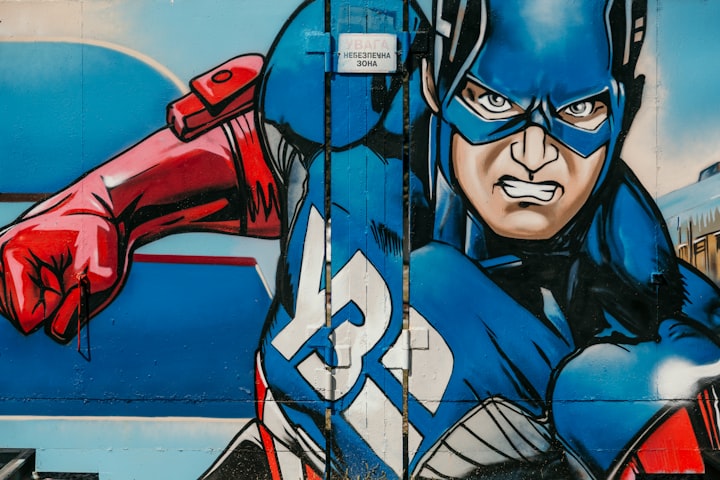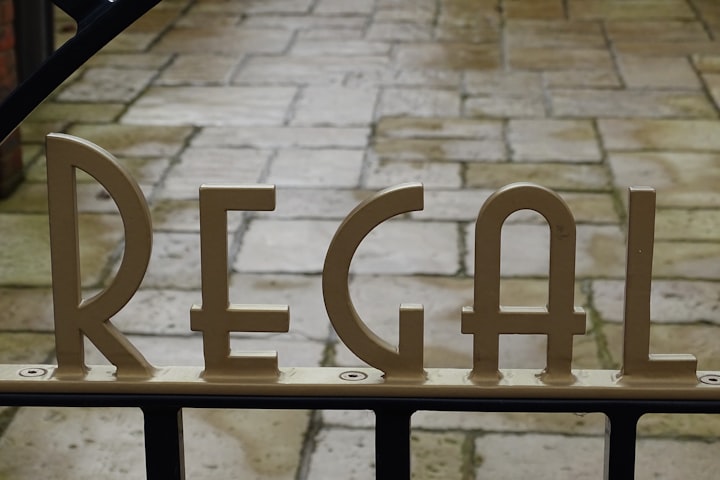The Banality of Evil: Lessons From 'Line of Duty'
How the UK's most popular police procedural TV programme showed us how shockingly mundane true villainy often is.

- THIS ARTICLE CONTAINS SPOILERS FROM THE LATEST SEASON OF 'LINE OF DUTY.' IF YOU HAVEN'T WATCHED IT, THEN… WELL, TO BE HONEST, WHY NOT?
For the last few weeks, the UK has been thinking one thing - who is 'H'?
For those who haven't seen the BBC's 'Line of Duty', 'H' is the mysterious criminal overlord who, for over a decade, has been one step ahead of our heroes in Anti-Corruption 12, a unit that investigates police malfeasance. Every season, Steve, Kate, and Ted bring to justice a platoon of bent coppers, but their master, the eponymous 'H', has remained elusive. Until now.
'H' has finally been revealed.
And it was a strange experience.
For 'H' was none other than Ian Buckells, a seemingly incompetent detective we first met back in season one.

Buckells has been a constant presence across all six series, and never a reassuring one. Lazy and possessing the social skills of a rock, he's a policeman who had consistently been promoted despite seeming to be a useless one. Whenever he appeared it was a clear sign that an investigation was about to be curtailed with an outrageous act of ineptitude. He was the closest thing to comic relief.
However, it turns out that he - like the show's writer - was playing the long game. Buckells' buffoonery was an act; he was 'H' all along. Whenever Buckells derailed an investigation, it was a deliberate ploy to protect himself and his paymasters in the organised crime group he was working for, and not because he was a terrible detective.
Trust me - no one saw it coming.
It's fair to say that fans' reactions were mixed.
After all the great characters we've been introduced to, how could the master villain be the blandest one? And 'Line of Duty was never short of memorable character.
In addition to the wonderfully drawn reoccurring characters, each season brings a new guest lead character. And they've all been fantastic.
From Lennie James' noble but flawed Tony Gates, to Keeley Hawes' wonderfully prickly Lindsay Denton, to Daniel Mays' unpredictable but ultimately damaged Danny Waldron, to Stephen Graham's one-man crusade against corruption in the form of the tragically misguided John Corbett, the show has not only given us characters a mere police procedural doesn't deserve but they've also been played by some of the finest performers in the country.

Given those benchmarks, poor Buckells was always going to fall short.
Not only that, each of the season's guest leads had complexity. Every single one may have been a bent copper but the seeds of their fall from grace were planted either in a poor decision they made or a character flaw. Sometimes their travails were even due to an attempt to do the right thing. They were never 'bad' people - they were humans who got caught up in events that quickly spiralled out of their control. Meanwhile, Buckells was in it for the money. How dull.
The lengthy interrogation scenes are the best thing about 'Line of Duty.' In them, Ted and co slowly chip away at the culprit's tangled web of wrongdoing, culminating in an emotional, dramatic climax. It also makes for a bit of actorly grandstanding as the guest lead does battle with our heroes. However, when Buckells was hauled in for this season's finale, we were treated to him repeatedly saying, "No comment", and someone who didn't seem to much care for the whole thing.
Come on, Ian - at least try.
Compared to the drama that normally accompanies this part of the show, it was distinctly underwhelming.
Yet, I loved it. The reveal was perfect.
Because villainy is so often banal.
True evil doesn't lurk in a hollowed-out volcano and stroke a cat. More often than not it comes in the form of incompetency or self-preservation. Ian Buckells may feel like an underwhelming personification of criminality, but he's a real one. Also, if you take a step back, he's actually the perfect one for the world of 'Line of Duty.' Because despite the Shakesperian character arcs of many of the characters, the show is essentially about greed.
The main focus has always been on AC-12's attempts to bring down that season's nominated bent copper, but - in the background - has been the continual presence of the organized crime group (OCG). Apart from spending a lot of time getting to know the group's leader early on, the reptilian Tommy Hunter, and Corbett's infiltration of the group in season five, we've spent more time with the police instead of them.
And we never needed to. Because there's nothing interesting there. It doesn't matter what they did, all they were ever concerned with was money. That's it. A multitude of individual lives could be ruined just as long the cash kept coming. In that sense, Buckells was ideal. No one better summed what greases the wheels of crime than the annoying detective; money.
Murder, prostitution, bribery of public officials… behind them all was simple greed. The OCG never had a Bloefled-type inclination to take over the world. They couldn't care less. They just wanted to get rich.
For all the moral complexity explored across the six seasons, it couldn't be any more fitting that AC-12's nemesis was someone who lacked any complexity, and who had no moral compass and only saw pound signs. Someone who - unlike them - had no grand quest to change the world around them, but who simply wanted to line their own pockets. If anything, it only emphasisesd the nobility of the three main characters - headstrong Steve, driven Kate, and the thoroughly decent Ted Hastings.
However, it also reveals that their battle is a losing one; catching criminals with a skewed morality is one thing, but how can you fight people who don't even see the world in those terms? How do you bring to justice those who don't even accept the concept of justice? Ted's team may possess an absolutist black and white appreciation of the law; meanwhile, their adversaries are morally colourblind. They don't care.
Nor did Buckells.
There was no elation at finally catching the bad guy, as Buckells seemed disinterested. He'd been caught; so what? The chances are he'll just find another way to orchestrate things from his prison cell.
That's why it was perfect.
In a show which has often stretched credulity, the climax of 'Line of Duty' was brilliantly down-to-earth. It wasn't so much of a damp squib, as wonderfully low-key reflecting the sheer beige, banality of criminality. Ian Buckells might not have had the scope of Tony Gates, Lindsay Denton, or John Corbett, but he was the ideal adversary for AC-12.
It's unclear whether another season will be commissioned. I sincerely hope it will be, but I'll also understand if everyone involved is a bit bored of chasing bent coppers by now. However, if that is to be the last time we see AC-12 in action, then I don't think there's better encapsulation of the show than in the form of Detective Ian Buckells.
Banal, annoying, apathetic, and greedy - he was the perfect criminal.
---------------------------------------------------------------------------------------
If you've liked what you've read, please check out the rest of my work on Vocal, including my Top Story:
If you've really, really liked what you've read, a small tip would be greatly appreciated.
Thank you!
About the Creator
Christopher Donovan
Hi!
Film, theatre, mental health, sport, politics, music, travel, and the occasional short story... it's a varied mix!
Tips greatly appreciated!!
Thank you!!






Comments
There are no comments for this story
Be the first to respond and start the conversation.